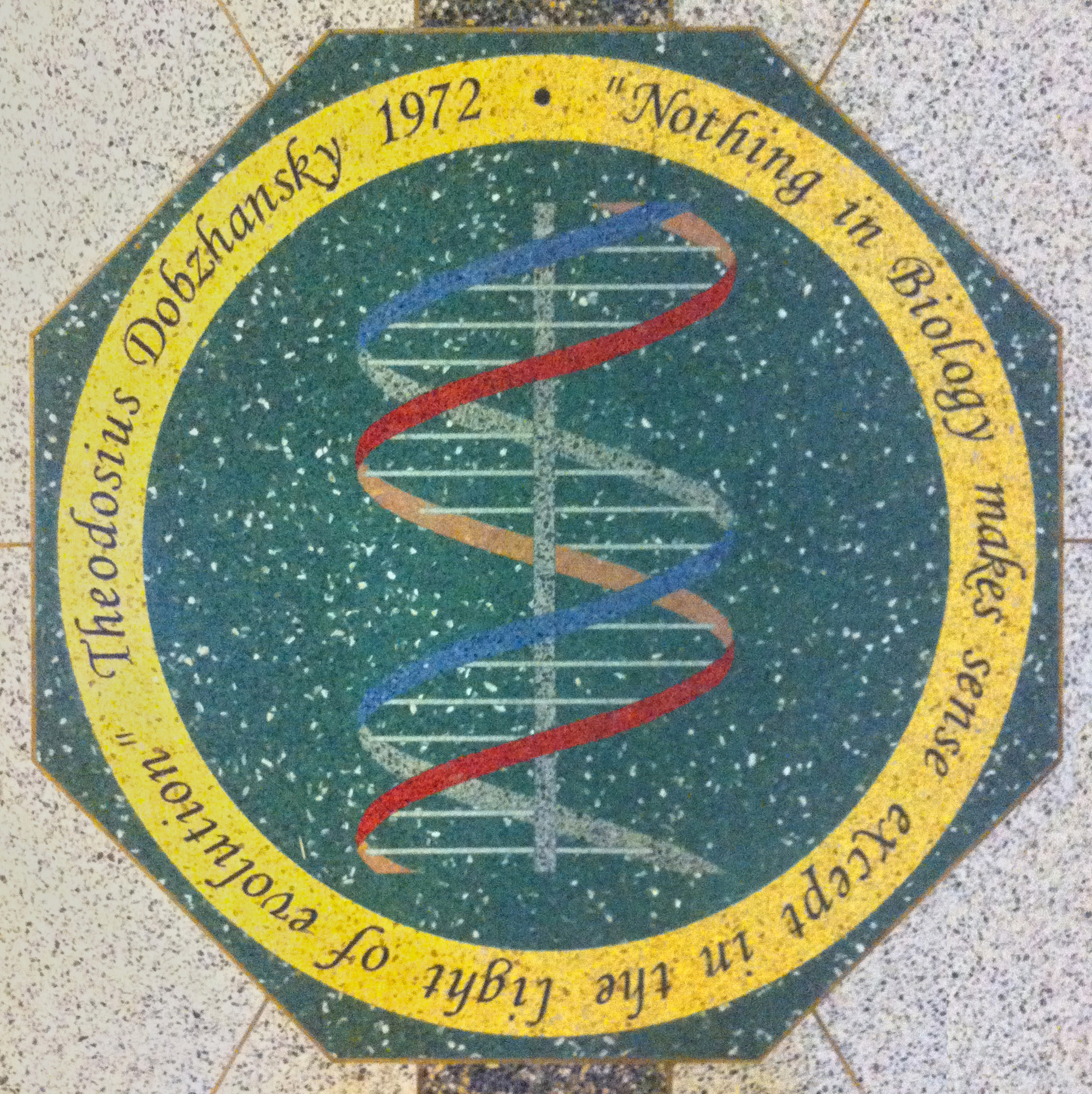Meet Your Maker: Evolution
Humans are created beings, literally “creatures.” That means we didn’t just happen. Something must have created us. Planets, crystals, and meteorites are cool, but they aren’t creatures; living things are. As Richard Dawkins explains, all organisms are creatures, engineered by the blind process of evolution. When you understand evolution to be your creator, it naturally helps you to understand yourself. Evolution illuminates your connection to the living world, your separation from it, your discontent in modern society, and your unique position in the world of living things.
Understanding evolution to be your creator means affirming your continuity with the living world. First Plato and then the medieval Church tried to put humans on the other side of a divide, with flesh on the animal side and our true, immaterial selves on the spiritual side. But modern science affirms that our nerves, sensations, feelings, and even thoughts are of the flesh. The love that a momma bear feels for her cubs is something like the love a human mother feels for her children—Plato be damned. We are animals not according to some dry categorization but by the raw fact of flesh-and-blood descent.
Paradoxically, evolution tells us not only that we’re connected to the rest of the living world but also that we are something new under the sun. We humans use symbols, speech, language, thought, deliberation, and logic. We even use our abstract, thinking brains to understand evolution, our very creator. In this way, we are different from anything else that terrestrial evolution has ever created. In particular, we have internal autobiographies, what Daniel Dennett calls narrative centers of gravity. That makes us special, literally different as a “species.”
If evolution is our creator, then it is also the source of our discontent. Spiritual, political, and reforming idealists have generally understood society to be in some sense evil or unnatural. Marxists and Christians disagree on human nature but agree that everyday society doesn’t represent the right way for people to live. Evolution tells us that we are primarily evolved for life in a tribal society, and when there’s a mismatch between our primeval instincts and our modern lifestyles, that spells trouble.
Finally, if evolution is our creator, then our creator evidently respects our freedom. Like Thomas Jefferson’s impersonal God, evolution establishes us with certain qualities, capacities, and predispositions, but it does not control us on a day-to-day basis or even look over our shoulders as we make moral decisions. Evolution doesn’t hang around waiting for you to pray for miracles so it can break the laws of physics on your behalf. Instead, evolution has set things up a certain way, and, to a large extent, we thinking humans have taken it from there. Termites evolved their way to building arches, but we humans figured out arches in a fraction of the time by thinking and planning. We’re different. Evolution may have built our plan-making brains, but humans with plans move too quickly for evolution to control us.
Religion traditionally concerns itself with humanity’s creator, and atheist religion is no different. We can learn more about ourselves and our mortal lives by learning more about that which created us: biological evolution.
Successful Kickstarter: Raising money to self-publish Grandmother Fish, the first book to teach evolution to preschoolers.

No comments:
Post a Comment
Note: Only a member of this blog may post a comment.